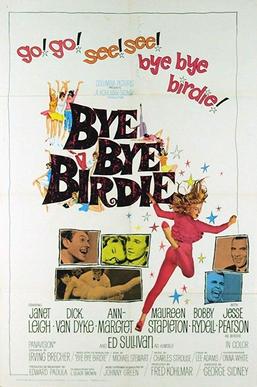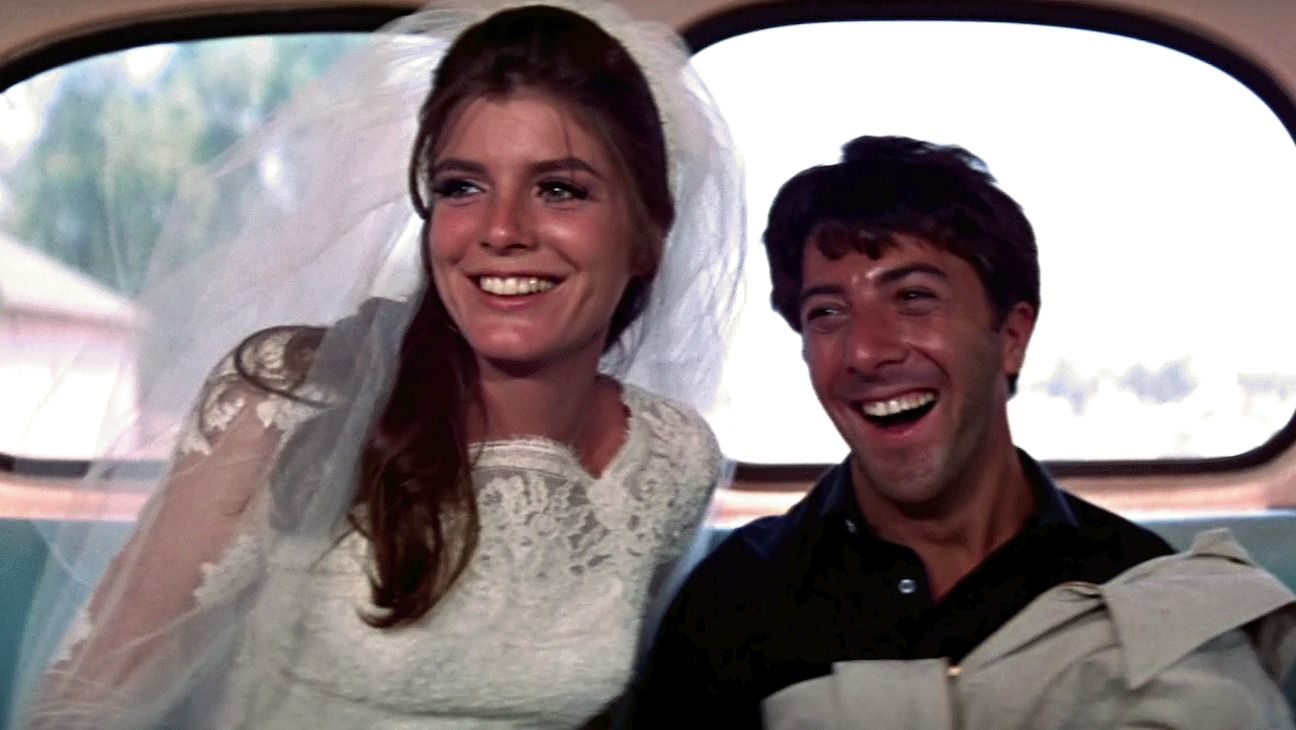
The world of American musical theater, film, and television mourns the passing of a titan, Charles Strouse, who died at his New York City home on May 15 at the age of 96. A celebrated and multi-award-winning composer, Strouse was responsible for some of Broadway’s most beloved and enduring works, a career that spanned over seven decades and left an indelible mark on popular culture.
From the upbeat refrains of “Put on a Happy Face” to the hopeful anthem “Tomorrow,” Strouse’s compositions captured the public imagination across generations. His remarkable ability to craft melodies that resonated deeply with diverse audiences earned him multiple accolades, including three Tony Awards for Best Musical for ‘Bye Bye Birdie,’ ‘Applause,’ and ‘Annie,’ alongside Grammy and Emmy honors. His death was announced by his four children, Benjamin, Nicholas, Victoria, and William Strouse.
This article delves into the illustrious career of Charles Strouse, examining the key milestones, transformative collaborations, and the iconic productions that cemented his legacy. We explore his journey from a classically trained musician to a Broadway luminary, tracing the evolution of his distinctive compositional style and the profound impact of his most celebrated works, beginning with his foundational years.

1. **Early Life and Musical Roots**Charles Louis Strouse was born on June 7, 1928, in New York City, the son of Ethel (Newman) and Ira Strouse. His early introduction to music came from his mother, a pianist, whom he sought to amuse. He recounted, “I started tinkering at the piano to amuse her, to make her happy. She liked it, I guess. I had a good ear and took lessons.” This early experience with shared music at the family piano, a source of solace from his parents’ health issues, later became a poignant inspiration for the opening sequence of the iconic television series ‘All in the Family.’
Strouse pursued formal musical education with vigor, graduating from the Eastman School of Music in 1947. His academic journey then led him to two scholarships at Tanglewood, where he had the privilege of studying under the esteemed American composer Aaron Copland. Copland, recognizing Strouse’s burgeoning talent, facilitated a scholarship for him to study further with the legendary teacher Nadia Boulanger in Paris. Boulanger, known for her rigorous instruction, offered Strouse a perspective that shaped his career path, assuring him that his gift for “light music” was valuable, stating, “to make someone forget illness and suffering is also a calling.” His initial aspirations had been rooted in classical music, but Boulanger’s counsel provided a profound validation for his emerging inclinations towards popular forms.
Read more about: Unlocking Ingenuity: A Comprehensive Guide to Tackling Tricky Problems in Math and Life’s Complexities

2. **Formative Collaboration with Lee Adams**A pivotal moment in Strouse’s career occurred in 1949 when he met lyricist Lee Adams at a party. This encounter sparked a longtime collaboration that would define a significant portion of his professional life. The duo initially honed their craft by writing songs for summer resorts in the Adirondacks, notably at Green Mansions, where they were part of a full theater staff that produced original revues every Saturday night all summer. This environment provided a fertile ground for their creative partnership, allowing them to experiment and develop their distinctive style.
Their work extended to numerous Off-Broadway musical revues, including ‘Catch a Star,’ ‘Shoestring Revue,’ ‘The Littlest Revue,’ and ‘Kaleidoscope.’ Beyond these productions, Strouse and Adams also crafted specialty material for renowned performers such as Kaye Ballard, Carol Burnett, Jane Morgan, and Dick Shawn, demonstrating their versatility and growing reputation within the industry. In 1958, Strouse, collaborating with lyricist Fred Tobias, achieved an early pop music success with the chart-topping song “Born Too Late,” recorded by The Poni-Tails, hinting at the broader appeal his melodies would soon command.
Read more about: Beyond the Screen: 14 Must-Watch Movies You Didn’t Know Were Based on Mind-Blowing True Stories

3. **Broadway Breakthrough: Bye Bye Birdie**The year 1958 also marked the Broadway breakthrough for Charles Strouse and Lee Adams when producer Edward Padula hired them. Their task was to create a satirical musical that would capture the essence of rock and roll and the burgeoning teen idol culture. The resulting show, ‘Bye Bye Birdie,’ became their first major success, opening in 1960. It starred Chita Rivera and Dick Van Dyke, and its fresh, energetic portrayal of small-town pandemonium surrounding a rock star’s military draft resonated with audiences, earning four 1961 Tony Awards, including Best Musical. This marked Strouse’s first of three Tony Awards, solidifying his status as a significant new voice on Broadway.
‘Bye Bye Birdie’ introduced the world to an array of unforgettable songs, including the enduringly optimistic “Put On A Happy Face” and the lively “A Lot of Livin’ to Do.” Despite The New York Times initially panning the show as “neither fish nor fowl nor musical comedy,” its popular appeal was undeniable. It quickly became an enormous hit, and to this day remains one of the most frequently performed shows in community theaters and high schools across the country. The show’s success extended beyond the stage with a 1962 movie version, starring Ann-Margret, which became one of the top-grossing films of the year. This film famously featured Ann-Margret’s iconic performance of the newly added title song, “Bye Bye Birdie.” Decades later, Strouse and Adams would collaborate again to write “Let’s Settle Down” for the musical’s 1995 TV adaptation, starring Jason Alexander and Vanessa Williams, earning Strouse a 1996 Emmy Award for his continued contribution to the show’s legacy.

4. **Thematic Depth with All American & Golden Boy**Following the groundbreaking success of ‘Bye Bye Birdie,’ Charles Strouse continued his collaboration with Lee Adams, venturing into new thematic territory. Their next musical, ‘All American,’ debuted in 1962, featuring a book by the notable Mel Brooks and starring Ray Bolger. Although the show did not achieve the commercial success of its predecessor, closing after just three months and 80 performances, it contributed a significant piece to the American songbook: the popular standard “Once Upon a Time.” This song was subsequently recorded by numerous celebrated artists, including Frank Sinatra, Tony Bennett, Perry Como, Eddie Fisher, Al Martino, and Bobby Darin, underscoring Strouse’s ability to compose melodies with lasting appeal.
Their partnership further explored dramatic themes with ‘Golden Boy’ (1963/1964), a musical adaptation of Clifford Odets’s play. This production starred the incomparable Sammy Davis Jr., whose electrifying performance contributed to its run of 568 performances. The show garnered Strouse his second Tony Award nomination, cementing his reputation for versatility and his capacity to create compelling scores for narratives beyond lighthearted satire. The score for ‘Golden Boy’ also featured the memorable song “This Is the Life,” which became another recognizable tune within his expanding repertoire.
Read more about: The Unforgettable Lines and Trailblazing Shows That Rewrote Television History

5. **Soaring High with It’s a Bird…It’s a Plane…It’s Superman!**In 1965, Charles Strouse and Lee Adams, alongside book writers David Newman and Robert Benton, brought the iconic comic strip character to the Broadway stage with ‘It’s a Bird…It’s a Plane… It’s Superman!’ The musical aimed to infuse the world of superheroes with a Broadway sensibility, and though it enjoyed a run of 129 performances, it did not achieve the widespread commercial success of Strouse’s previous hits. The show is particularly remembered for introducing the popular Strouse & Adams song, “You’ve Got Possibilities,” first recorded by Linda Lavin, which captured a sense of playful optimism characteristic of their work.
Interestingly, the experience with ‘Superman’ influenced Strouse’s approach to future projects. Producer and director Hal Prince often advised him that “if you ever write something for children, you better make sure it’s marketed as an adult show that a parent can bring a child to. If it’s a children’s show, it won’t be as successful.” This caution was notably on Strouse’s mind when he initially expressed skepticism about adapting ‘Little Orphan Annie,’ having faced the challenges of broadly appealing material with ‘Superman.’ Despite its moderate stage run, the musical’s theme found a unique afterlife, being adopted by Washington, D.C., television station WTOP (now WUSA) for news broadcasts, demonstrating the enduring catchiness of Strouse’s melodies.

6. **Second Tony Win: Applause**Charles Strouse reunited with his longtime collaborator Lee Adams in 1970 for the musical ‘Applause.’ This production represented another successful venture for the duo, solidifying their reputation for crafting engaging theatrical scores. ‘Applause’ was a musical adaptation of the classic film ‘All About Eve,’ which in turn was based on Mary Orr’s short story ‘The Wisdom of Eve.’ The show captivated audiences with its compelling narrative about ambition and betrayal in the cutthroat world of Broadway, further brought to life by a stellar cast.
The musical starred the legendary Lauren Bacall, whose commanding presence and performance were central to the show’s triumph. ‘Applause’ proved to be a significant critical and commercial success, earning Strouse his second Tony Award for Best Musical. This achievement underscored his continued ability to create scores that not only entertained but also elevated the dramatic content of the productions, reinforcing his versatility as a composer and his deep understanding of musical theater’s power to tell complex stories.

7. **Annie: A Phenomenal Success**Without question, Charles Strouse’s biggest Broadway success arrived in 1977 with ‘Annie.’ This landmark musical, developed with collaborators Martin Charnin as lyricist and Thomas Meehan as book writer, was based on Harold Gray’s beloved comic strip, “Little Orphan Annie.” The Depression-era narrative, following a plucky red-headed orphan girl who ultimately wins the heart of billionaire Oliver Warbucks, struck an immediate chord with audiences, becoming one of Broadway’s most phenomenal hits of the 1970s.
‘Annie’ garnered immense critical acclaim and commercial prosperity, winning seven Tony Awards, including Best Musical. Strouse himself earned his third Tony Award for the score and a Grammy Award for Best Cast Show Album, cementing the musical’s place in theatrical history. The score is replete with iconic songs that quickly entered the popular lexicon, such as the perennially optimistic “Tomorrow,” the spirited “It’s the Hard–Knock Life,” the cheerful “You’re Never Fully Dressed Without a Smile,” and the heartfelt “I Don’t Need Anything But You.” Strouse famously composed “Tomorrow” in rehearsal to cover a set change, a testament to his innate theatrical acumen. The original Broadway run exceeded 2,300 performances, spawned numerous revivals, inspired hundreds of worldwide productions, and was adapted for two film and two television productions, demonstrating its enduring appeal and its profound impact on global culture. Andrea McArdle, the original Annie, and Danielle Brisebois, who played Molly, both spoke highly of Strouse’s charm, kindness, and inspiring presence during their time with the production.

8. **Later Broadway Ventures and Tony Nominations**Following the monumental triumph of ‘Annie,’ Charles Strouse continued to pour his creative energy into the Broadway stage, demonstrating an unwavering commitment to musical theater. He pursued diverse projects, collaborating with various lyricists and book writers, which led to a string of new productions and further Tony Award recognition. These later works, though not always achieving the same scale of commercial success as his biggest hits, nonetheless showcased his adaptability and the depth of his compositional prowess.
Among these significant later collaborations were ‘Charlie & Algernon’ (1980), for which he received a Tony Award nomination for his score with lyricist David Rogers, based on the novel ‘Flowers for Algernon.’ He also earned a Tony nomination for ‘Rags’ (1986), a collaboration with lyricist Steven Schwartz and book writer Joseph Stein, starring Teresa Stratas. Another notable venture was ‘Nick & Nora’ (1991), a musical based on Dashiell Hammett’s ‘The Thin Man’ characters, written with Richard Maltby, Jr., which also garnered him a Tony nomination for Best Original Score.
His commitment extended to other ambitious projects, including ‘Dance a Little Closer’ (1983), with lyrics by Alan Jay Lerner, which, despite its pedigree, closed after one performance, and ‘An American Tragedy’ (1995). Strouse also lent his talents to ‘Marty’ (2002) with Lee Adams, ‘Real Men’ (2005), and ‘Minsky’s’ (2009), continuing to explore new narratives and musical forms well into his later years, a testament to his persistent drive and artistic curiosity.

9. **Captivating Film Scores**Beyond the footlights of Broadway, Charles Strouse extended his musical genius to the silver screen, crafting memorable scores that enriched a variety of cinematic experiences. His ability to evoke mood and enhance storytelling through music translated seamlessly from stage to film, leaving an indelible mark on several notable movies. These compositions often highlighted his versatility, adapting his style to suit diverse genres, from gritty dramas to lighthearted animated features.
One of his most iconic film scores was for the acclaimed 1967 film ‘Bonnie and Clyde,’ starring Warren Beatty and Faye Dunaway. This score perfectly captured the tumultuous spirit of the era and the tragic romance of its protagonists, contributing significantly to the film’s lasting impact. He further explored dramatic narratives with his work on ‘The Night They Raided Minsky’s’ (1968) and ‘There Was a Crooked Man’ (1970), which starred Henry Fonda and Kirk Douglas, showcasing his capacity to underscore complex human stories with evocative melodies.
His talents also spanned into more contemporary and family-friendly fare, as seen with his score for Sidney Lumet’s ‘Just Tell Me What You Want’ and the beloved animated feature ‘All Dogs Go to Heaven’ (1989), for which he wrote the songs. These film credits underscore Strouse’s broad appeal and his remarkable skill in tailoring his musical voice to the unique demands of each production, cementing his reputation as a versatile and sought-after composer across different media.
Read more about: The Engines of Legend: How Iconic Vehicles Drive Cinematic Narratives and Automotive Innovation

10. **The Unforgettable Television Themes**While his Broadway and film achievements are widely celebrated, Charles Strouse also became a household name for his contributions to television, specifically through one of the medium’s most enduring and recognizable theme songs. His ability to encapsulate a show’s essence within a brief musical introduction endeared him to millions of viewers and solidified his place in television history. His television work further showcased his understanding of popular culture and his unique knack for creating instantly memorable tunes.
Perhaps his most widely recognized television contribution is the iconic song ‘Those Were the Days,’ co-written with Lee Adams, for Norman Lear’s groundbreaking series ‘All in the Family.’ This theme, performed at an upright piano by actors Carroll O’Connor as Archie Bunker and Jean Stapleton as Edith Bunker, served as the opening to over 200 episodes. It quickly became one of the most popular television themes of all time, perfectly setting the tone for a show that fearlessly tackled social issues with humor and heart.
Remarkably, the inspiration for this famous title sequence stemmed from Strouse’s own rare, happy childhood memories of playing music with his parents at their family piano, offering a poignant personal connection to a piece of American pop culture. This blend of personal history and universal appeal made ‘Those Were the Days’ an indelible part of television lore, demonstrating Strouse’s profound ability to touch audiences through the simplest of melodies and nostalgic reflections.
Read more about: The Engines of Legend: How Iconic Vehicles Drive Cinematic Narratives and Automotive Innovation

11. **Classical Compositions and Opera**Before becoming a giant of Broadway, Charles Strouse harbored deep aspirations in the realm of classical music, a foundation that continued to influence his work throughout his illustrious career. His formal education at the Eastman School of Music and tutelage under luminaries like Aaron Copland and Nadia Boulanger had instilled in him a profound appreciation for classical forms, which he revisited and explored in his later years, demonstrating a full circle artistic journey.
Although Boulanger famously advised him that his gift for “light music” was valuable, Strouse never entirely abandoned his classical roots. He composed a variety of orchestral works, chamber music, and piano concertos, allowing him to express a different facet of his musical identity. These compositions revealed a depth and complexity that complemented his more widely known theatrical works, showcasing the breadth of his creative capabilities beyond popular melodies.
A particularly notable classical endeavor was his opera ‘Nightingale’ (1982), which starred the renowned soprano Sarah Brightman and enjoyed a successful run in London before subsequent productions. Additionally, his original piano work, ‘Concerto America,’ composed in 2002 to commemorate 9/11 and the spirit of New York City, premiered at The Boston Pops in 2004. These works underscore that while Strouse’s heart was largely in Broadway, his musical soul was equally attuned to the grand traditions of classical composition.
Read more about: Unmasking History’s Hidden Horrors: 14 Figures Whose True Evil Emerged Posthumously

12. **Nurturing New Talent and Personal Reflections**Charles Strouse was not only a prolific composer but also a dedicated mentor, deeply invested in fostering the next generation of musical theater artists. His commitment to the craft extended beyond his own creations, embracing the role of an educator and guide for aspiring talents, ensuring his legacy would also be one of inspiration and support for future generations. This aspect of his career highlights a generous spirit and a desire to give back to the community that nurtured his own success.
In 1979, Strouse founded the ASCAP Musical Theatre Workshop in New York, an initiative through which many young composers and lyricists found a vital forum to hone their craft and develop their work. This workshop became a crucial incubator for emerging talent, providing invaluable guidance and a platform for creative development, showcasing Strouse’s profound belief in the collaborative nature of theater and the importance of mentorship.
Furthermore, Strouse shared his life and wisdom in his autobiography, ‘Put on a Happy Face: A Broadway Memoir,’ published by Union Square Press in July 2008. In this book, he offered personal insights into his creative process, his collaborations, and the challenges and triumphs of a career spanning decades. This memoir served as both a historical account and a source of inspiration, revealing the man behind the music and his enduring optimism and passion for life and art.
Read more about: Unlocking Ingenuity: A Comprehensive Guide to Tackling Tricky Problems in Math and Life’s Complexities

13. **Philosophy of Creativity and Resilience**Throughout his extensive career, Charles Strouse consistently demonstrated a profound philosophy towards creativity and a remarkable resilience in the face of setbacks. His approach to his work was characterized by an unyielding passion for composing and an unwavering belief in the power of music to connect and uplift, even when dealing with the inevitable challenges of the entertainment industry. This steadfast dedication was a cornerstone of his long-lasting success.
Strouse famously addressed the issue of ‘flops’ with pragmatism, stating, “Everybody has flops. When I teach, the students say, ‘How can you work three or four years on a show … and it flops? How do you recover from that?’ The only answer is, you’ve done your best, it didn’t work, what’s next?’” This perspective highlights his ability to move forward, learn from experiences, and maintain an optimistic outlook, embodying the very spirit of his song ‘Put on a Happy Face.’ He succinctly summarized his life’s driving force: “I love composing. I love it, you know. And if I’m not composing, if I don’t have a new project or something, I’m rather at a loss of what to do.”
His personal philosophy extended to broader life views as well, describing himself as a Jewish atheist, explaining that after his sister’s early death from breast cancer, he no longer believed in God. Yet, even in this, his professional path echoed Nadia Boulanger’s early counsel: “to make someone forget illness and suffering is also a calling.” This profound statement encapsulated his lifelong dedication to creating music that brought joy, solace, and escape to audiences, transforming his personal experiences into universal art.
Read more about: Beyond the Billions: Unpacking the 14 Daily Habits That Propel the World’s Wealthiest to Unprecedented Success

14. **Lasting Recognition and Enduring Impact**The enduring legacy of Charles Strouse is celebrated through a multitude of accolades and the continued impact of his vast body of work on global culture. His contributions to musical theater, film, and television have earned him a revered place in the pantheon of American composers, marking him as a true giant whose melodies continue to resonate with generations. His life was a testament to creative persistence and the power of a single individual to shape the cultural landscape.
Strouse was deservedly inducted into the Songwriters Hall of Fame in 1985 and the American Theater Hall of Fame in 2001, recognizing his significant and lasting contributions to both songwriting and the theatrical arts. Beyond his three Tony Awards, Grammy, and Emmy honors, he was also the recipient of several honorary doctorates, the 1999 ASCAP Foundation Richard Rodgers Award, and the Oscar Hammerstein Award, further cementing his esteemed status within the artistic community.
His influence continues to be recognized and honored in various ways, including his induction into the Rochester Music Hall of Fame in 2012, celebrating his lifetime body of work, and the naming of the Charles Strouse School of Music at Five Towns College in 2013. Surviving him are his four children—Benjamin, Nicholas, Victoria, and William Strouse—and eight grandchildren, ensuring that the personal and artistic lineage of this remarkable composer endures, a testament to a life lived in harmony with his profound love for music.
Read more about: The AI Revolution: 15 Key Careers Set to Transform (Or Disappear) by 2030 – Are You Ready to Pivot?
Charles Strouse’s passing marks the end of an extraordinary era for American entertainment, but his melodies, infused with optimism, wit, and a deep understanding of the human spirit, will undoubtedly echo through theaters, cinemas, and homes for generations to come. His unwavering dedication to his craft, his resilience in the face of challenges, and his profound ability to connect with audiences across diverse genres secure his place as one of the most beloved and influential composers of his time.



